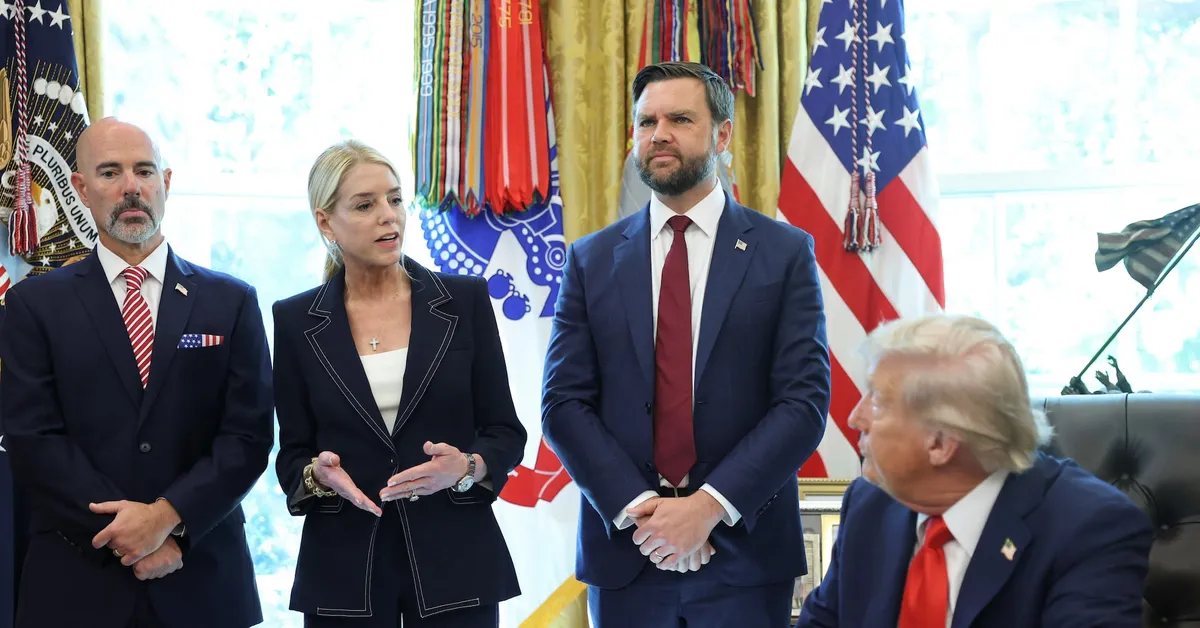
On August 25, 2023, reports surfaced that the Trump administration is contemplating imposing sanctions on officials within the European Union (EU) or its member states who are involved in the implementation of the landmark Digital Services Act (DSA). This consideration arises from U.S. complaints that the DSA could potentially censor American voices and impose additional costs on U.S. tech companies.
Should the sanctions proceed, it would mark an unprecedented escalation in the Trump administration's ongoing battle against what it perceives as Europe's attempts to suppress conservative viewpoints. According to two sources familiar with the matter, senior officials at the State Department have not yet reached a definitive decision regarding these punitive measures, which are likely to manifest as visa restrictions.
The specific EU or EU member state officials targeted by these potential sanctions remain unclear. However, discussions regarding this issue were held internally by U.S. officials last week, indicating that the matter is being taken seriously at the highest levels of government.
In a related context, President Trump recently threatened countries with digital taxes, warning that additional tariffs would be imposed on their goods unless they repeal such legislation. This assertion highlights the ongoing tensions between the Trump administration and the EU, as trade partners often voice concerns about domestic regulations perceived as restrictive. However, the act of sanctioning government officials over regulatory issues is highly unusual.
The relationship between the Trump administration and the EU has been strained due to tariff threats, tense negotiations, and criticisms regarding the treatment of U.S. tech companies. Reuters reported that the administration has directed U.S. diplomats in Europe to initiate a lobbying campaign to foster opposition against the DSA, aiming to either amend or repeal the legislation.
The Digital Services Act is designed to create a safer online environment by requiring major tech companies to take greater responsibility for curbing illegal content, including hate speech and child sexual abuse material. However, the U.S. government has expressed concerns that the DSA imposes undue limitations on freedom of expression while attempting to combat misinformation and disinformation.
In an internal directive issued in early August, Secretary of State Marco Rubio instructed U.S. diplomats to engage regularly with EU governments and digital services authorities to articulate U.S. concerns regarding the DSA's impact on American companies.
In May, Rubio also hinted at the possibility of implementing visa bans for individuals who censor speech by Americans, particularly in contexts involving social media. A spokesperson for the State Department did not confirm or deny the reports about potential sanctions but acknowledged growing concerns regarding censorship in Europe.
Responding to claims of censorship, an EU Commission spokesperson stated that freedom of expression is a fundamental right within the EU and is central to the DSA. They asserted that the legislation aims to set clear rules for online intermediaries in addressing illegal content while safeguarding freedom of expression and information online.
On social media, Trump made a bold statement regarding countries imposing digital taxes, warning that unless these "discriminatory actions" are rescinded, he would impose significant additional tariffs on those nations' exports to the U.S. Furthermore, he indicated intentions to restrict exports of highly protected technology and chips.
Previously, in February, Trump directed his trade chief to revive investigations aimed at imposing tariffs on imports from countries that implement digital service taxes targeting U.S. technology companies. Despite shifting away from traditional U.S. support for democracy and human rights, the Trump administration has selectively advocated for issues linked to right-wing politicians, perceiving a suppression of conservative voices online.
The Trump administration has also taken notable steps into the internal politics of European allies, publicly criticizing what it sees as the suppression of right-wing leaders in countries like Romania, Germany, and France. U.S. officials, including Vice President JD Vance, have repeatedly accused European authorities of censoring American voices, a claim that the EU firmly rejects.
In a surprising moment at a conference typically known for transatlantic unity, Vance accused European leaders of censoring the speech of groups such as Germany's right-wing AfD party and suggested that Europe is backsliding on democratic principles. In March, EU antitrust and tech officials assured U.S. lawmakers that the DSA aims to maintain open digital markets, rather than targeting U.S. companies.
As the situation develops, the implications of potential sanctions and ongoing tensions between the Trump administration and the EU will be closely monitored by both sides, as they navigate the complex landscape of international trade and digital regulation.